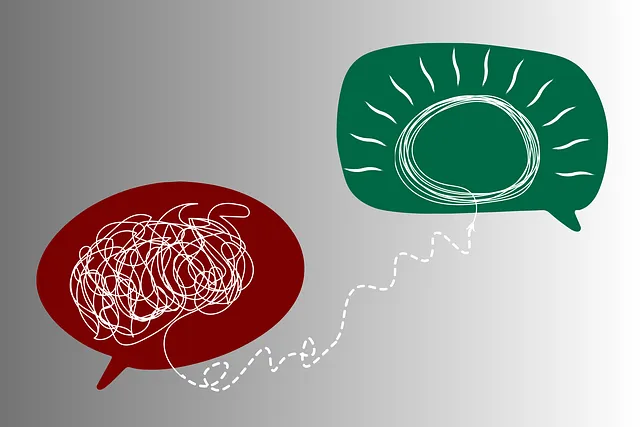Lafayette Kaiser Permanente is tackling the challenge of accurately diagnosing mental illnesses through multi-faceted initiatives detailed in their psychiatry reviews. By addressing complex symptoms, comorbidity, and a wide range of presentations, they're adopting comprehensive assessment strategies that include mental health education programs based on Mind Over Matter and Inner Strength Development. Integrated digital solutions, refined communication, and Mental Wellness Coaching Programs have improved diagnostic accuracy. Inspired by the psychiatry reviews, continuous quality assurance in mental health care is essential for healthcare systems to enhance diagnosis, patient outcomes, treatment adherence, and provider well-being through best practice implementation and a culture of continuous learning.
Mental illness diagnosis accuracy is a critical aspect of patient care, yet it remains challenging due to the complexity and diversity of mental health conditions. This article explores efforts to improve diagnostic accuracy, focusing on the insights gained from the Lafayette Kaiser Permanente Psychiatry Reviews. We delve into clinical practices, evaluate tools and techniques, and discuss future directions emphasizing continuous quality assurance in mental health care, with a particular emphasis on the Lafayette Kaiser Permanente psychiatry reviews.
- Understanding the Challenge: The Complexity of Mental Illness Diagnosis
- Lafayette Kaiser Permanente Psychiatry Reviews: A Closer Look at Clinical Practices
- Enhancing Diagnostic Accuracy: Tools and Techniques for Improvement
- Future Directions: Continuous Quality Assurance in Mental Health Care
Understanding the Challenge: The Complexity of Mental Illness Diagnosis

Diagnosing mental illnesses accurately is a complex challenge due to their multifaceted nature and varying symptoms. Each individual’s experience with mental health conditions is unique, making it difficult for healthcare providers to pinpoint specific diagnoses. This complexity is further exacerbated by the comorbidity of disorders—a common occurrence where individuals simultaneously struggle with multiple mental health issues. The diverse range of presentations, from subtle changes in behavior to severe crises, adds another layer of difficulty for psychiatrists and psychologists, especially when dealing with complex cases.
At Lafayette Kaiser Permanente, Psychiatry reviews highlight these challenges. Accurate diagnosis is a cornerstone of effective treatment planning. Therefore, healthcare professionals are increasingly focusing on comprehensive assessment strategies that go beyond traditional methods. Incorporating mental health education programs designed to promote Mind Over Matter principles and foster Inner Strength Development has emerged as a promising approach. These initiatives aim to enhance diagnostic precision by empowering individuals with knowledge about their conditions and encouraging resilience.
Lafayette Kaiser Permanente Psychiatry Reviews: A Closer Look at Clinical Practices

The Lafayette Kaiser Permanente Psychiatry Reviews serve as a critical initiative to enhance mental health care delivery. These reviews delve into the clinical practices and protocols employed by psychiatrists, offering a comprehensive analysis of current approaches. By scrutinizing patient encounters, diagnosis processes, and treatment plans, the program aims to identify areas for improvement in accuracy and effectiveness. This focused examination is particularly timely, as it addresses the growing demand for mental health services and the need to ensure precise diagnoses, especially with the complexity of modern psychiatric conditions.
The reviews highlight the importance of burnout prevention strategies for healthcare providers, emphasizing the potential impact on clinical decision-making. Furthermore, they advocate for the development of Mental Wellness Coaching Programs to support both patients and practitioners. In addition, public awareness campaigns can play a pivotal role in destigmatizing mental illness, encouraging early interventions, and ultimately improving diagnosis accuracy by fostering open communication and education within communities.
Enhancing Diagnostic Accuracy: Tools and Techniques for Improvement

Improving diagnostic accuracy is a multifaceted approach that leverages advanced tools and techniques. At Lafayette Kaiser Permanente, psychiatry reviews have been enhanced through integrated digital health solutions, such as online mental wellness coaching programs. These programs not only facilitate continuous monitoring but also provide personalized support, enabling healthcare professionals to detect subtle changes in patient conditions. Additionally, communication strategies have been refined to encourage open dialogue between patients and providers, ensuring that symptoms and concerns are accurately conveyed.
The integration of Mental Wellness Coaching Programs Development has played a significant role in enhancing diagnostic accuracy. These programs focus on building confidence through education, coping mechanisms, and self-assessment tools. By empowering individuals with knowledge about their mental health, these initiatives promote proactive engagement in care, leading to earlier detection and more effective treatment planning. Such innovations reflect a commitment to modernizing psychiatric practices, aligning with the latest research and patient needs as reviewed by Lafayette Kaiser Permanente’s psychiatry experts.
Future Directions: Continuous Quality Assurance in Mental Health Care

As we move forward, integrating continuous quality assurance (CQA) becomes paramount in mental health care, mirroring successful models seen in Lafayette Kaiser Permanente psychiatry reviews. Regular review processes can help identify areas for improvement and ensure that best practices are consistently applied. This involves not only measuring the accuracy of diagnoses but also evaluating patient outcomes, treatment adherence, and provider well-being. By adopting CQA, healthcare systems can foster a culture of continuous learning and adaptation.
Healthcare providers play a crucial role in this evolution. Encouraging them to prioritize self-care routine development for better mental health and implementing burnout prevention strategies can significantly impact overall care quality. Additionally, focusing on depression prevention through early intervention and accessible resources aligns with the goal of enhancing diagnosis accuracy. These efforts collectively contribute to creating a more robust and resilient mental healthcare ecosystem.
The article highlights the importance of improving mental illness diagnosis accuracy, as evidenced by the findings from the Lafayette Kaiser Permanente psychiatry reviews. By examining clinical practices and implementing enhanced tools and techniques, the healthcare industry can strive for continuous quality assurance in mental health care. These efforts are crucial in ensuring effective treatment and improved patient outcomes. The review serves as a stepping stone towards revolutionizing mental health diagnosis, ultimately fostering better patient care and navigating the complexities of mental illness.






